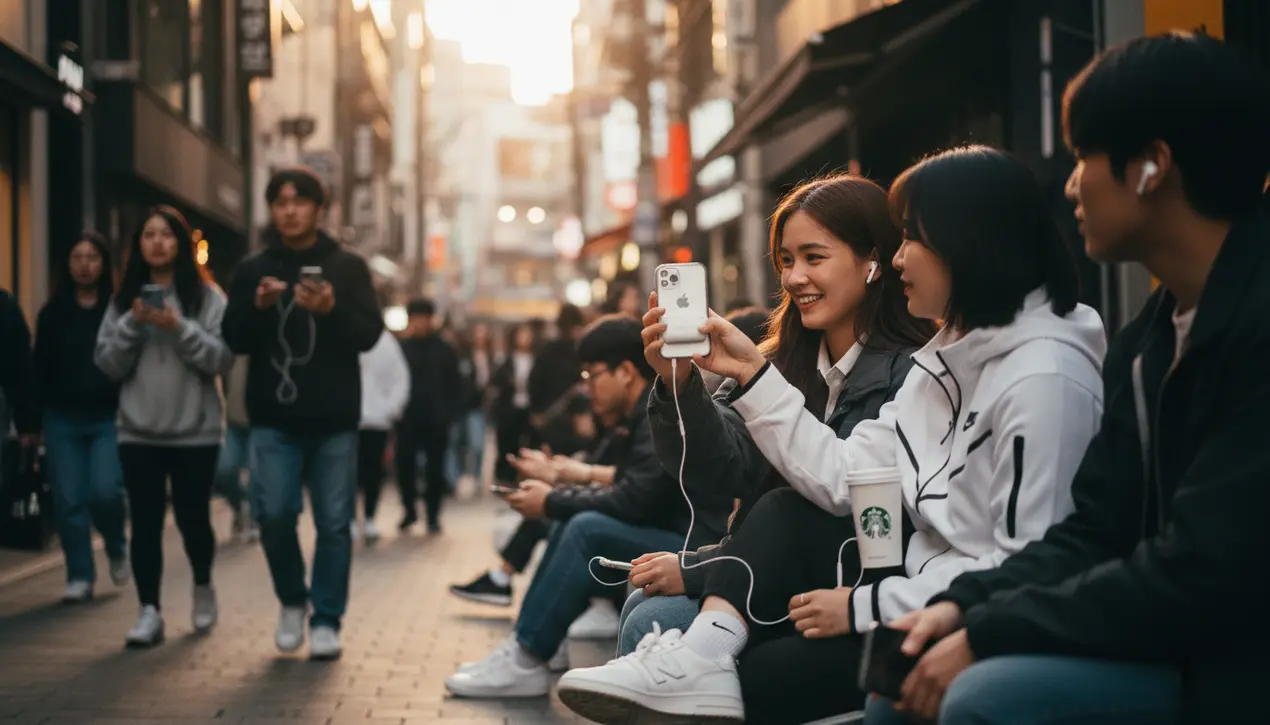
Entertainmentculture & trendsGenerational Shifts
South Korea's Gen Z Prefers American Brands Like Apple.
AN
Andrew Blake
19 hours ago7 min read4 comments
When Samsung Electronics chairman Lee Jae-yong took the stage at an Nvidia event in Seoul last month and quipped, 'Why are there so many iPhones here?' the knowing laughter that rippled through the crowd wasn't just a moment of corporate awkwardness; it was a stark admission of a profound cultural shift happening in one of the world's most technologically patriotic nations. South Korea, a country that has long worn the global dominance of its homegrown champion Samsung as a badge of honor, is witnessing its youngest generation, Gen Z, increasingly casting their lot with American brands, with Apple's iPhone leading the charge.A Gallup Korea poll from July crystallized this trend, revealing that over 60 percent of respondents in their twenties are iPhone users, a statistic that would have been unthinkable a decade ago and speaks volumes about evolving consumer identities. This isn't merely a story about smartphone preference; it's a fascinating case study in the erosion of national brand loyalty in the face of globalized cool.To understand it, you have to dive into the complex cocktail of factors at play. For South Korea's youth, the iPhone has transcended its function as a communication device to become a powerful social and aesthetic statement.It's perceived as a sleek, minimalist status symbol, deeply intertwined with the global cultural cachet of California's tech ethos, a stark contrast to the more utilitarian, albeit highly capable, image of Samsung's Galaxy series. This aligns with a broader gravitation towards other American lifestyle brands, from the head-to-toe Nike and New Balance athletic wear that dominates street fashion to the ubiquity of Starbucks cups as urban accessories, signaling a desire to participate in a borderless, international identity.The shift is also deeply economic. South Korea's Gen Z is arguably the most financially strained cohort in recent memory, facing a brutal job market and skyrocketing housing costs, yet they exhibit a 'premiumization' tendency—a willingness to splurge on high-ticket items that confer perceived social value and quality, viewing an iPhone not as an extravagance but as a justifiable investment in their personal brand.Furthermore, Apple's masterful ecosystem lock-in, with its seamless integration between iMessage, AirDrop, and the MacBook, creates a powerful social network effect; being the lone green bubble in a sea of blue iMessage group chats can feel socially isolating, creating a peer pressure that Samsung's rival RCS messaging simply cannot yet match. This presents a significant long-term challenge for Samsung, which must now fight not just on features and price, but on the far more nebulous and difficult battlefield of cultural relevance. It forces a reckoning: can a national champion, once a source of immense pride, maintain its dominance when the very definition of 'cool' for the next generation is being dictated from Cupertino rather than Seoul? The implications ripple beyond electronics, hinting at a potential softening of the fierce economic nationalism that has long characterized South Korea's industrial policy and consumer behavior, suggesting that in an increasingly connected world, even the strongest domestic fortresses are not impervious to the tides of global taste.
#South Korea
#Generation Z
#Consumer Trends
#American Brands
#Samsung
#Apple
#iPhone
#Smartphones
#Gallup Poll
#featured
Stay Informed. Act Smarter.
Get weekly highlights, major headlines, and expert insights — then put your knowledge to work in our live prediction markets.
Comments
Loading comments...
© 2025 Outpoll Service LTD. All rights reserved.